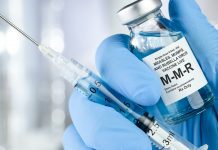
A report by the OECD in 2015 estimated that we can expect an average of 10 million human deaths per year between 2015 and 2050 due to antimicrobial resistance (AMR).
Antimicrobial Resistance, or AMR, is a consequence of the extensive use of antibiotics in humans and in agricultural sectors. The bacteria eventually become resistant to antibiotics which are meant to kill them, and so newer and stronger antibiotics are needed.
The result is a vicious cycle in which bacteria becomes stronger, and consequently deadlier, while science races to keep pace and develop new ways of destroying resistant bacteria.
Most institutions responsible for human welfare agree that antimicrobial resistance is the biggest threat to human health in the world. Biotechnology engineer and Chief Scientist Officer of Life Cykel, Thomas Loussier, explains what antimicrobial resistance is and what we need to do to stop it.
There is a shared urgency across both the human and animal kingdom to find a solution to this issue.
The global impact
The environmental dumping over the last 80 years of such high quantities of synthetic nonbiodegradable antibiotics had disastrous impacts on the Earth’s microbial ecosystem – including our food, our water and our soil.
In 2018, the World Health Organization stated that ‘antibiotic resistance is one of the biggest threats to global health, food security, and development today’ . That warning shouldn’t be taken lightly. Professor David Livermore who works at an antimicrobial resistance lab in London even described attempts to tackle the issue as an “ongoing war of attrition” .
But there is hope.
Scientists at Life Cykel have been studying how functional mushrooms could provide an answer. Historically, we have waited for illnesses to occur in humans and animals alike before treating them to restore them to health. Life Cykel has instead used the kingdom of fungi to find preventative alternatives to the reactive, treatment-based approach to medicine that has created the issue of antimicrobial resistance in the first place.
Recent research and studies on beta glucans, secondary metabolites and novel microbial metabolites, which are present in saprophytic fungi (responsible for breaking down and recycling organic matter), indicates that these compounds with high biopotency can be profoundly beneficial to the immune systems of humans and animals.
Mushroom biotechnology and its applications
Saprophytic fungi have been found to secrete beneficial and medicinal compounds. At Life Cykel, we have been screening the different bacteria involved in antimicrobial resistance and creating a unique mix of compounds in order to develop specific preventative responses to a number of illnesses. These compounds when extracted from unique fungi strains present specific target of action.
For example, Spotty Liver Disease (SLD) is a pandemic issue within the poultry industry. Attacking birds from 20 weeks of age, SLD induces a sudden onset of significant mortality with a reduction in egg production. The strain responsible for SLD has become resistant to current antibiotics and as a consequence is decimating livestock across the world. Through a process of strain screening and unique extraction technologies, scientists were able to discover what combination of fungi-based compounds would bolster the animal’s immune system against the disease.
We have created a solution called Preotica, consisting of a specific complex of beneficial compounds from a range of selected strains of fungi and kakadu plum, a native Australian bush food that has more Vitamin C than any other fruit. We have tested Preotica on more than 250,000 birds in Australia, as well as testing to see if there was a difference compared with the treatment model.
From safety tests, to small scale trials and then large scale applied research phases, we have collected a large amount of data which helped us to better understand the pathologies involved and their mode of actions.
We focused on Spotty Liver Disease, E-coli and Salmonella. The results show the preventative models garnered a statistically significant drop in mortality in a short period of time compared to the reactive, treatment-based model. For example, a Spotty Liver Disease applied research trial done on 15 000 birds has shown a reduction of 65% in mortality in less than 10 days.
Using both methods would likely further reduce the mortality rates in livestock whilst reducing the use of antibiotics. However, the world is becoming increasingly aware of the use of chemicals, medication and hormones in their food – a solution like this can provide a natural and organic way of preventing illness in livestock.
Not only did the compounds lower mortality rates, but weekly egg number rate in the birds tested increased by 16.5%. One of the first farmers to work with Life Cykel has even come on board with the company as an investor.
Other applications
Antimicrobial resistance isn’t the only crisis that mushroom biotechnology can help tackle. Bee populations are dramatically declining due to the use of pesticides and use of antibiotics in agricultural practices. According to the annual nationwide survey conducted by the University of Maryland in the US, annual losses of beehives from 2018-2019 was approximately 40% . We wanted to see if these compounds could help and over the last four years, have been studying the application of fungi-based treatments on bees to increase longevity and boost their immune system.
To date we have tested our product, Beemunity, on 55 million bees around the world.
From our findings we have found that feeding bees a specific concentration of these compounds, instead of plain sugar water, increases their life by 8.22%. This is extremely beneficial for beekeepers as it means the bees can produce honey for longer and provides a glimmer of hope for the global bee population.
What’s next
Life Cykel has recently embarked on a new cycle of trials within the agriculture industry. We believe we can develop specific solutions for each different illness afflicting poultry, pigs, fish, horses and other livestock. Further testing needs to be done in different regions of the world to test against different strains and ensure specific response is provided to each pathology.
We chose London as a research base as it is home to leading universities and researchers. Although our research has been focused on livestock and bees to date, they are great steps toward our end goal – a globally available solution for antimicrobial resistance for all.
References
1. OECD Report, 2015
2. WHO, 2018: www.who.int/news-room/fact-sheets/detail/antibiotic-resistance
3. www.telegraph.co.uk/news/health/news/9391998/Why-antibiotics-are-losing-the-war-against-bacteria.html
4. www.sciencedaily.com/releases/2019/06/190619142532.htm
Thomas Loussier
Biotechnology engineer and Chief Science Officer
Life Cykel
Tweet @LifeCykel
www.instagram.com/LifeCykel/
lifecykel.com























The above-written content is very interesting. Antimicrobial resistance, and more specifically, antibiotic resistance, has become a major threat to our society. COVID-19 had led the entire world to a very curious risk and no doubt the AMR has become human’s first choice to work on. Bio Plus Antimicrobial Surfaces presented by Ultimate Buildmart gives ultimate antiviral, antibacterial and antifungal solution for AMR.
https://bit.ly/2L9PAfd